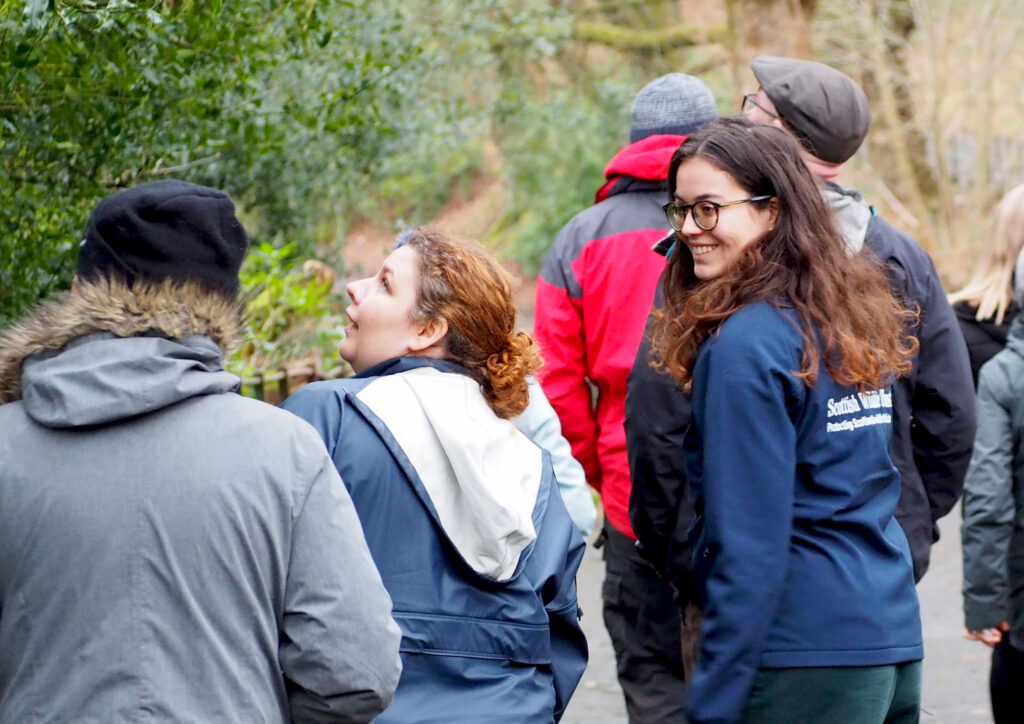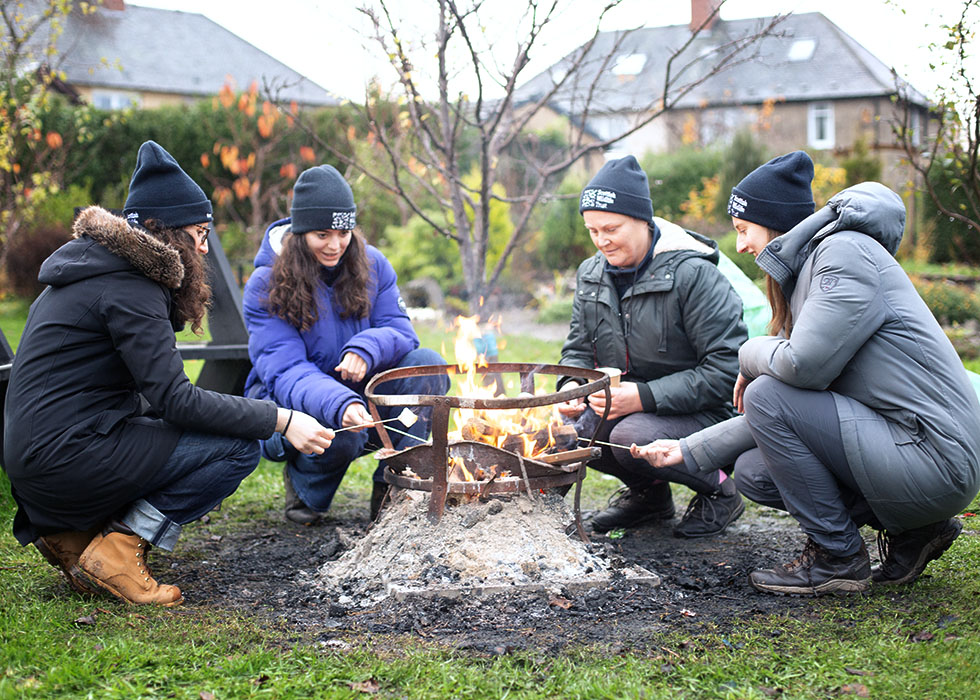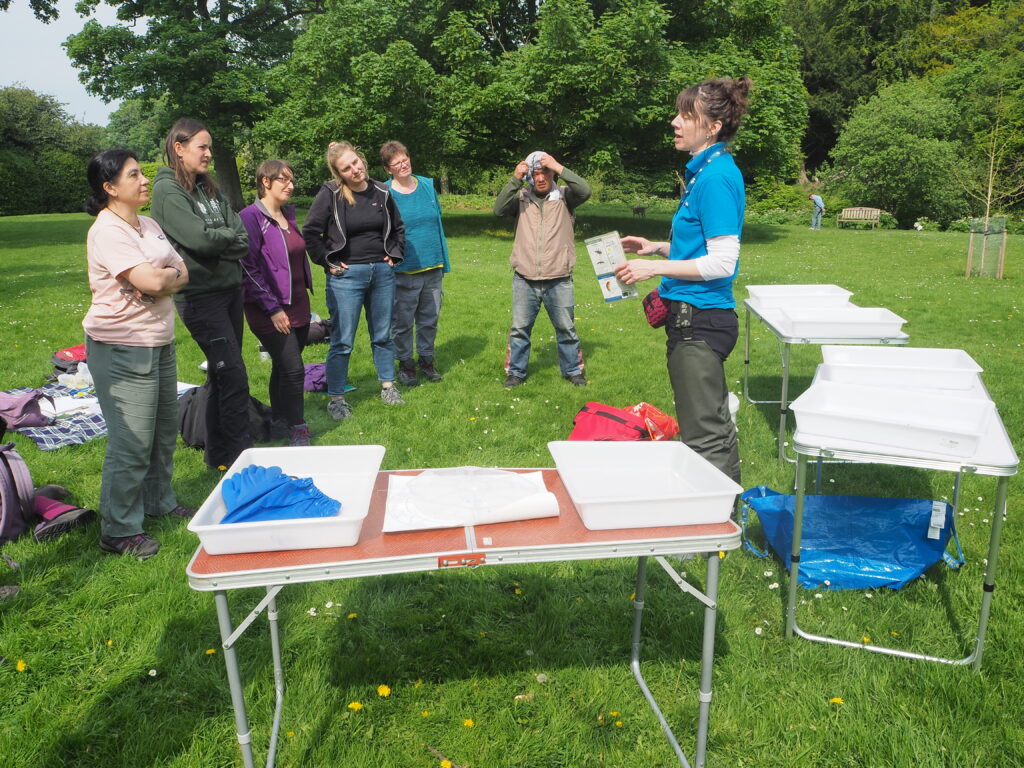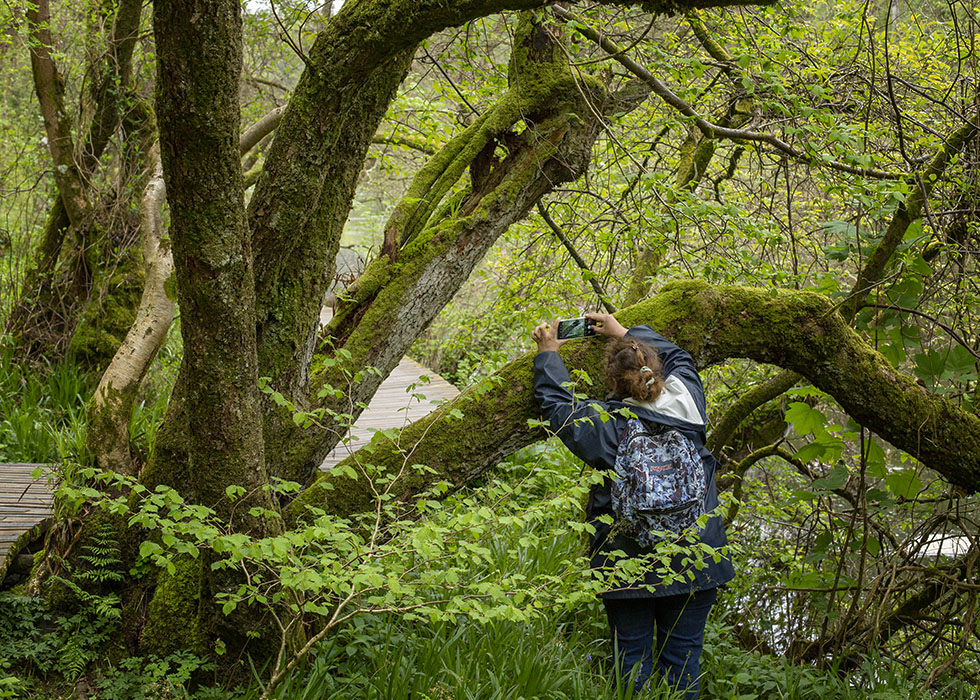Running successful events can be a crucial part of organising action for nature. Events can come in many different forms and may differ depending on what kind of action you’re planning to take, but there are some guidelines you can follow to help ensure each and every one is a success.
Why are events so important for action?
Events, whether in-person or online, are a great way to engage your local community. They can bring people together and are an opportunity to talk to large numbers of people more easily. They are also a useful tool for gaining feedback and opinions from people about your ideas and plans. As we talk about in our Community Consultation resource page, understanding what the local community wants is key to a successful project!
Events help to create an identity for your project and give people the opportunity to get to know you and others working on it. Seeing that the project is run by locals within the community, with the benefit of the local area at its heart, can help build confidence and support. Events will help you spread the word about your project and generate interest and helpful ideas to progress and move forwards.
Events can help you build connections and contacts. Making real, lasting change within your community can not only take time but a lot of effort, so it’s useful to have a group of other locals behind you to lend a hand. Getting to know people face to face, listening to their thoughts and any concerns, can inspire more trust in you and your project. These events are also a great opportunity to gather contact details for anyone interested in being involved, such as volunteers.
There are many different types of events you could run, such as:
- an online community consultation;
- a guided walk;
- a practical session such as tree planting;
- a volunteer recruitment day; or
- an open day with activities for children and opportunities for adults to learn about and get involved in your project.
Things to consider…


- Consider your goal: Having a clear goal before you start planning will help you decide what sort of event to run. For example, if you’re fundraising you might plan to charge people a small entrance fee for your event or organise a raffle. Is your goal to…
- Who is your target audience?: This also plays into your goals for the event. Knowing your target audience can help you decide what your event will look like. Identifying your target audience will also determine other factors such as location, time and day, and accessibility. For example, if your target audience are parents and children then planning your event at a time when these people would be available – such as during the day on a weekend – would ensure the best turnout. As you are planning, keep thinking back to your goal and your target audience to make sure your event is relevant and will be engaging to those attending.
- Have everything in place: There are a few things that you need to have in place before your event can happen. Risk assessments, insurance and the landowner’s permission are all vital for your event. If you don’t have these in place, you can get in serious trouble, so make sure they are sorted well before the day of your event.
- More on health and safety: Not the most exciting part of event planning admittedly, but one of the essentials! Ahead of your event you’ll need to make sure you’ve completed the right risk assessments. You’ll need risk assessments for the event venue or site, and for any activities you plan on running. You’ll also need to make sure you have the right insurance. In most cases this is public liability insurance. You can find more information about health and safety requirements and risk assessments on our dedicated Health and Safety resource page.
- Gather your resources: There is nothing worse than arriving on the day of your event and finding you don’t have enough tables or chairs! Make sure you know what equipment you need and where you are going to get it. Resources might include tables and chairs, a projector, or hand-outs with key information. It could also include any tools or kit needed for activities you are planning. Plan these well in advance and check with the venue or any contacts if they have items you can borrow or hire to avoid spending money unnecessarily.
- Make sure you have help if you need it: Take some time to think about what help you’ll need from other people. This could be to run activities, help with the set up or pack-down of the space, to deliver talks, or take minutes. Ask people to help well in advance of the event to ensure you have enough people available on the day. If you already have a volunteer database, now’s the time to use it! Just remember to say a big thank you to anyone that helps out.
- Have a clear plan for the event. Plan the timings if you need to, or if you are giving a talk then make sure you practice! For bigger events, make sure you have a map so you know where each of the activities are going to be held. If you have volunteers helping, make sure they know the plan too, Ask them to arrive early so you can explain the plan to them, or print a copy out for them if needed.
- Share the details! When you are promoting your event, make sure people have all the key details and ask your contacts to share the event to make sure you have a good turnout. Key details might include;
- Where the event is taking place.
- The date and time of the event; remember to include both what time it’s starting and how long it will be running for.
- Other key information, such as how long a guided walk will take, special guests you might have coming along, details of workshops or activities you are running, or age ranges if appropriate.
- Take a moment to take photos or videos: Photos and videos are a great way of recording how the day went and are handy for post-event or project marketing too, whether this is through a newsletter or on social media. It’s very easy to forget to take photos or videos on the day as there will be a lot going on, so reminding yourself and others to do this will help make sure you take the time to capture the event. Just make sure to get permission from any people before recording or photographing them.


Useful Links
- The Resource Centre is a charity that aims to support community groups. They have a huge range of information on their website including lots of advices on organising events and activities.
- The UK Government has a guide on organising voluntary events. It includes information about what type of events require a license as well as information on organising road closures as part of your event.
- The Health and Safety Executive (HSE) has a guidance on running events safely. There is lots of technical advice but there is also some handy tips mixed in too.
- The Scottish Council for Voluntary Organisations (SCVO) has lots of useful information on their website. They have a guide on insurance as well as a guide on working with volunteers.
- The National Council for Voluntary Organisations (NCVO) has some handy tips on their website including advice on fundraising as well as information on safeguarding if you are working with children or vulnerable adults.
- If you’d like to learn more about running events in your community to promote positive action for nature, you can now join our free online Pioneers Programme course. Find out more about the programme here.
